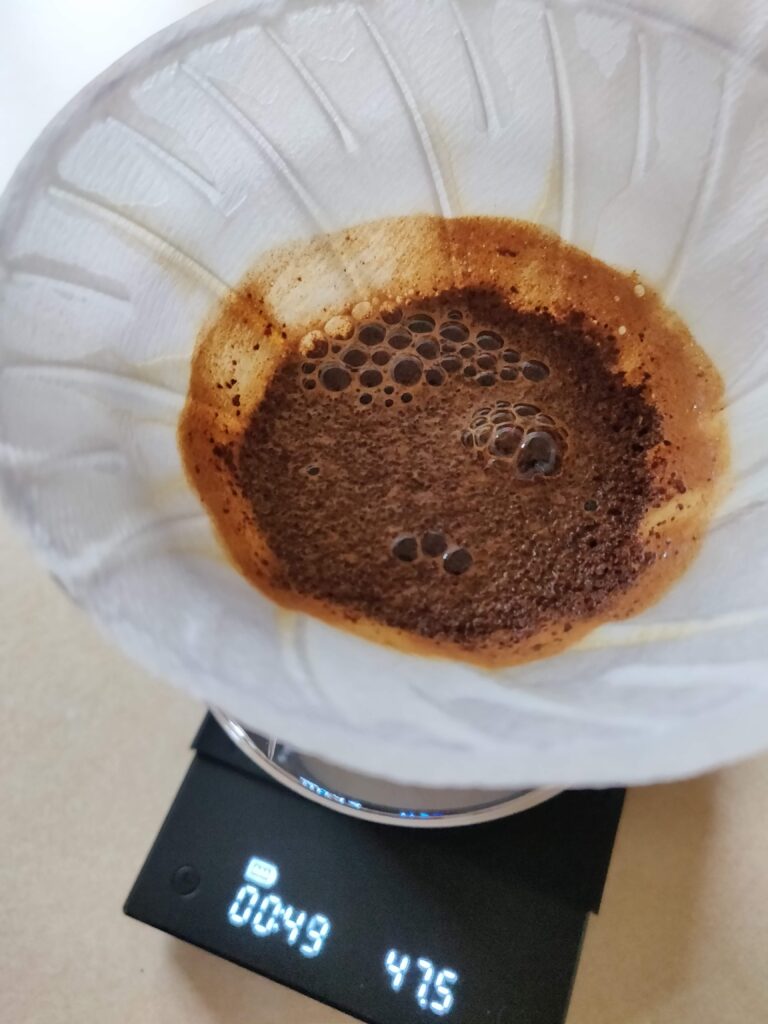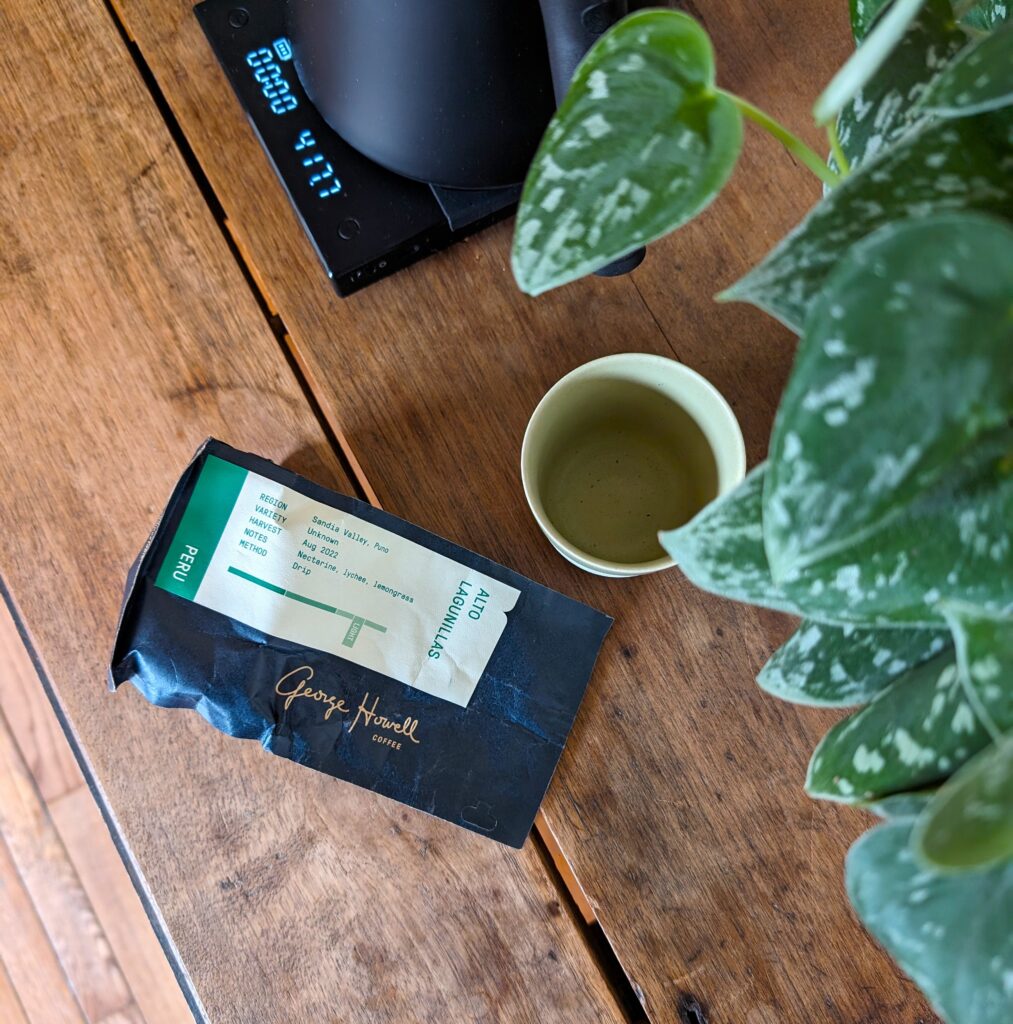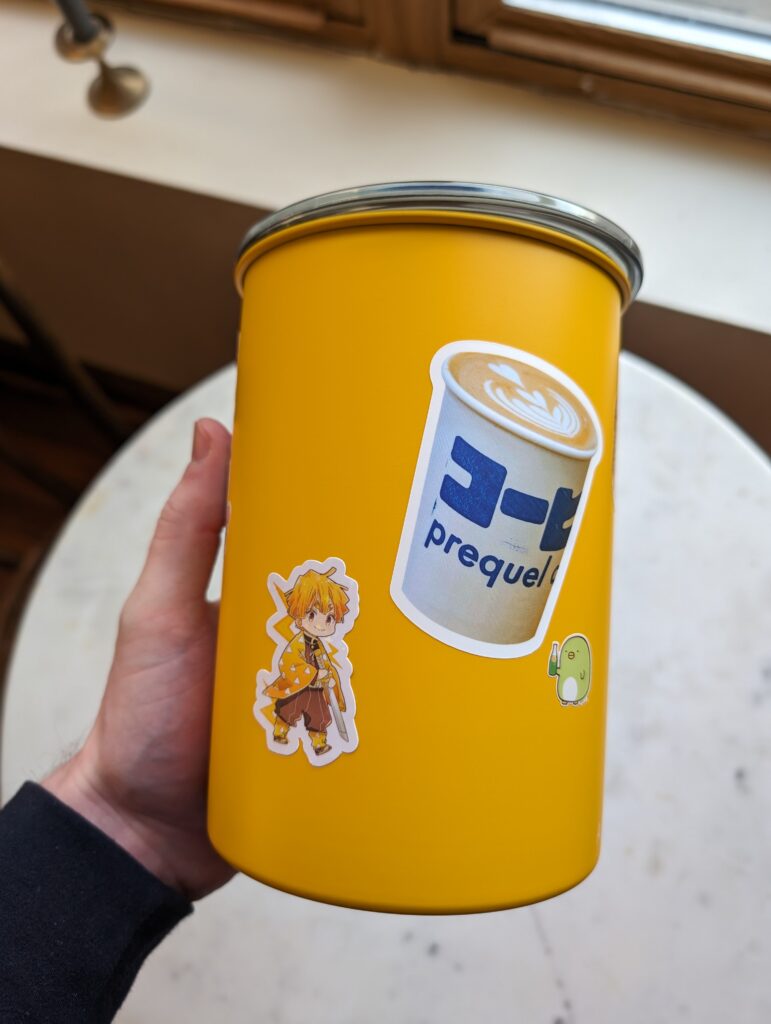When you first wander into the realm of specialty coffee you hear, “fresh is best”. But as you setup permanent residency in the third wave, you’re doing yourself a disservice by drinking coffee that’s too fresh.
resting coffee
The smell of freshly roasted coffee is intoxicating; it bleeds through the package, inviting you to tear it open. And if you’re spending over $20 on a bag of beans, how could you possibly accept anything older than coffee that was roasted yesterday, right? We’ll, you’re overcompensating.
Part of the reason we’re conditioned to want fresh coffee is because old, pre-ground super market coffee is so incredibly stale. When you’re new to the hobby, fresh coffee is one of the most obvious differentiators between commodity and specialty.
But overtime, beans release some of the carbon dioxide that was created during roasting.1 You might have noticed this during the bloom step of a pourover. Huge bubbles form and the coffee bed expands like there’s a balloon under it. That’s CO2 releasing and it’s an indicator that your coffee is likely too fresh.
Waiting longer will yield better flavor.

flavors open up
Two events lead me to finally accept that my patience would be rewarded. First, I started drinking more lightly roasted coffee. Second, I had one coffee get significantly better overtime.
It was a washed Ethiopian from Sey; at first, the taste was… fine.
A nice cup but nothing to write home about. It certainly didn’t reflect the “peach candy” tasting note on the box. But as I got towards the end of the bag, everything changed. Suddenly, the coffee was so sweet and expressive, it was a night and day difference.
Since then, I had another coffee, from George Howell, that went from: okay at ten days off roast, to really good at thirty days. I was finally tasting the lychee.

When I brewed these coffees too early, I didn’t bring out their full potential.
Light roasted coffees that are floral, tea like, or even fruity, usually benefit from extended resting time; also called “degassing”.
This is another reason to cup coffees. If you cup a lightly roasted coffee when it’s really fresh, then again after three weeks, you’ll likely notice more expressive flavors.
And there’s an additional potential benefit. Some brewers suspect that an excessive release of CO2 could form channels in your coffee bed. You might have noticed, when one of those big bloom bubbles pop, it leaves a divot. Perfect for water to take the path of least resistance through.
By resting your coffee you’re also increasing the likelihood of an even extraction.
roast degrees
Now, I do have to give one big caveat.
Resting time is dependent on the roast level of your coffee. If you’re drinking dark roasts, I’m sorry but you’ve wasted your time reading this far. (If I had a comment section you could leave a negative one. Perhaps an angry contact form submission would suffice?) You’re fine to brew within a few days of roasting.2
please practice patience
The lighter your coffee, the longer it needs to rest. A good rule of thumb is to leave the bag sealed for at least two weeks but for some coffees, four weeks is optimal.3
The easiest way to check this is to ask the roaster how long they recommend resting their coffee. They’ll know best when flavor peaks.4
longer shelf life
At this point you might be worried about your coffee going stale or loosing peak flavor. But you would be surprised how long high quality coffee lasts.
Rest coffee with the bag sealed; resist the urge to tear into temptation.
Once open, make sure you’re storing coffee in the most airtight, room temp, out-of-sunlight, environment you can. That way you’ll still be enjoying delicious coffee 30+ days off roast. And if you need something to brew right away, feel free to buy a bag that’s a little bit older.

I typically have at least one active bag open and one bag resting in the meantime.
I know this hobby is filled to the brim with little things to fuss over. This advice isn’t intended to give you one more thing to worry about. Once you get used to the idea, resting coffee will help you unlock elusive flavors and increase consistency in your pourovers.
- You might have noticed that a new bag of beans sometimes puffs up, like it’s filled with air. That’s a result of the beans releasing CO2. ↩︎
- Although espresso is a completely different beast. Coffee that is too fresh, even dark roasts, will be much more erratic in it’s extraction and flow. I would wait around ten days at least. ↩︎
- For medium roasts, one week is likely fine but “medium” is pretty relative so ask your roaster. ↩︎
- Apollon’s Gold for example, recommends 45 to 60 days of resting. ↩︎